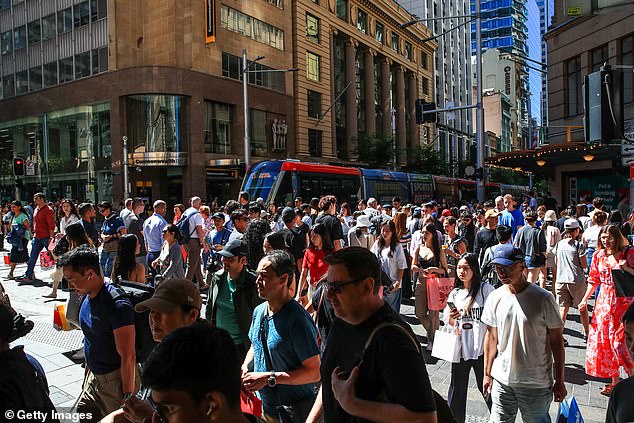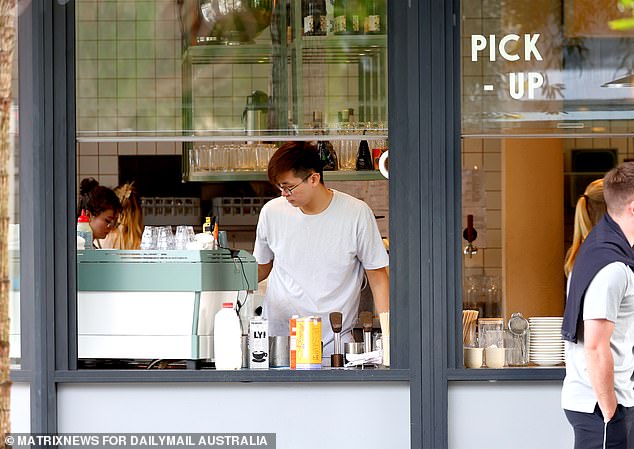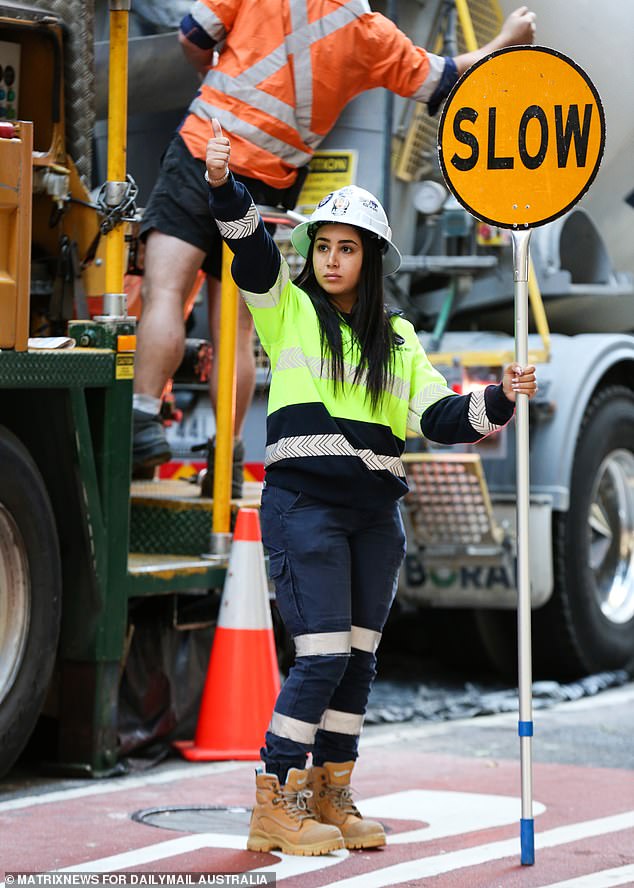High immigration is discouraging machinery investmentEconomists, Reserve Bank link this with productivity crisis
Australia’s productivity is going backwards, and economists say near record low-skilled migration is to blame.
A staggering 457,560 permanent and long-term migrants arrived in Australia last financial year, including international students often stuck in low-wage jobs such as Uber Eats delivery.
The influx has swelled the labour pool and fuelled a productivity crisis, with output per worker now going backwards.
MacroBusiness economist David Llewellyn-Smith says businesses are ditching technology because they can rely on cheaper migrant staff.
‘Because you’re importing cheap, foreign labour, most of it low-skilled, businesses tend to actually disinvest – they’d have no need to invest in automating processes when they’re just getting cheaper labour all the time,’ he told Daily Mail Australia.
‘These days, it’s hard to find an automated car wash because they’ve gone back to manual labour and now you pay a lot more to get less because you have cheap, foreign labour running car washes with people, so we’ve dis-automated.
‘That’s an analogy for you about many different things in the economy.’
Productivity fell 1 per cent in the year to March, and the RBA has slashed its growth forecast to just 0.7 per cent a year for the next two years.

Australia’s reliance on low-skilled migrants during a time of low unemployment appears to have backfired, with the nation’s productivity crisis worsening (pictured are Sydney pedestrians)

The Reserve Bank’s latest Statement on Monetary Policy also blamed weaker investment for Australia’s productivity woes (pictured is a Sydney cafe)
That’s a far cry from the 2.1 per cent annual surge during the internet boom of the 1990s and 2000s.
While AI has the potential to boost productivity levels like the internet did, the Reserve Bank warned expensive software was discouraging businesses from investing in the new technology.
Former Treasury secretary Ken Henry last month told the National Press Club in Canberra that poor productivity since the 2000s had cost Australian workers $500,000 in potential pay rises.
But his successor as Treasury boss, Martin Parkinson, said productivity would be boosted if migrants with degrees could have their qualifications properly recognised in Australia.
‘This is a political and economic no-brainer. Everyone here, citizen, resident or new migrant, should have the opportunity to contribute to their maximum ability.’
Trade unions have traditionally been opposed to high immigration levels because the bigger supply of labour suppresses wages.
But in a dramatic shift, ACTU assistant secretary Liam O’Brien said cutting red tape while keeping high standards would unlock a stronger future for the country.
‘Tackling the unnecessary barriers to skills recognition while maintaining our existing high standards for skills will unlock a better future for all workers here in Australia.’

Australian productivity plunged by one per cent during the year to March and the RBA is only expecting productivity to grow by by 0.7 per cent during the coming two years, down from a previous forecast of one per cent
The debate comes as Treasurer Jim Chalmers holds a three-day Economic Reform Roundtable this week at Parliament House in Canberra with business and union leaders – to try and address the nation’s falling productivity.
‘I have realistic expectations about the next few days, but I’m optimistic as well,’ he said.
‘I’m optimistic that there is an appetite for reform, there is ambition when it comes to dealing with the three major challenges in our economy.
‘Productivity, first of all, but also economic resilience and Budget sustainability as well. So, I’m realistic, but I’m optimistic that we can make some progress together.
‘I don’t believe that we will solve every challenge in our economy in three days.’
Share or comment on this article:
Visa factory nation: How Australia’s addiction to cheap migrant workers could be backfiring